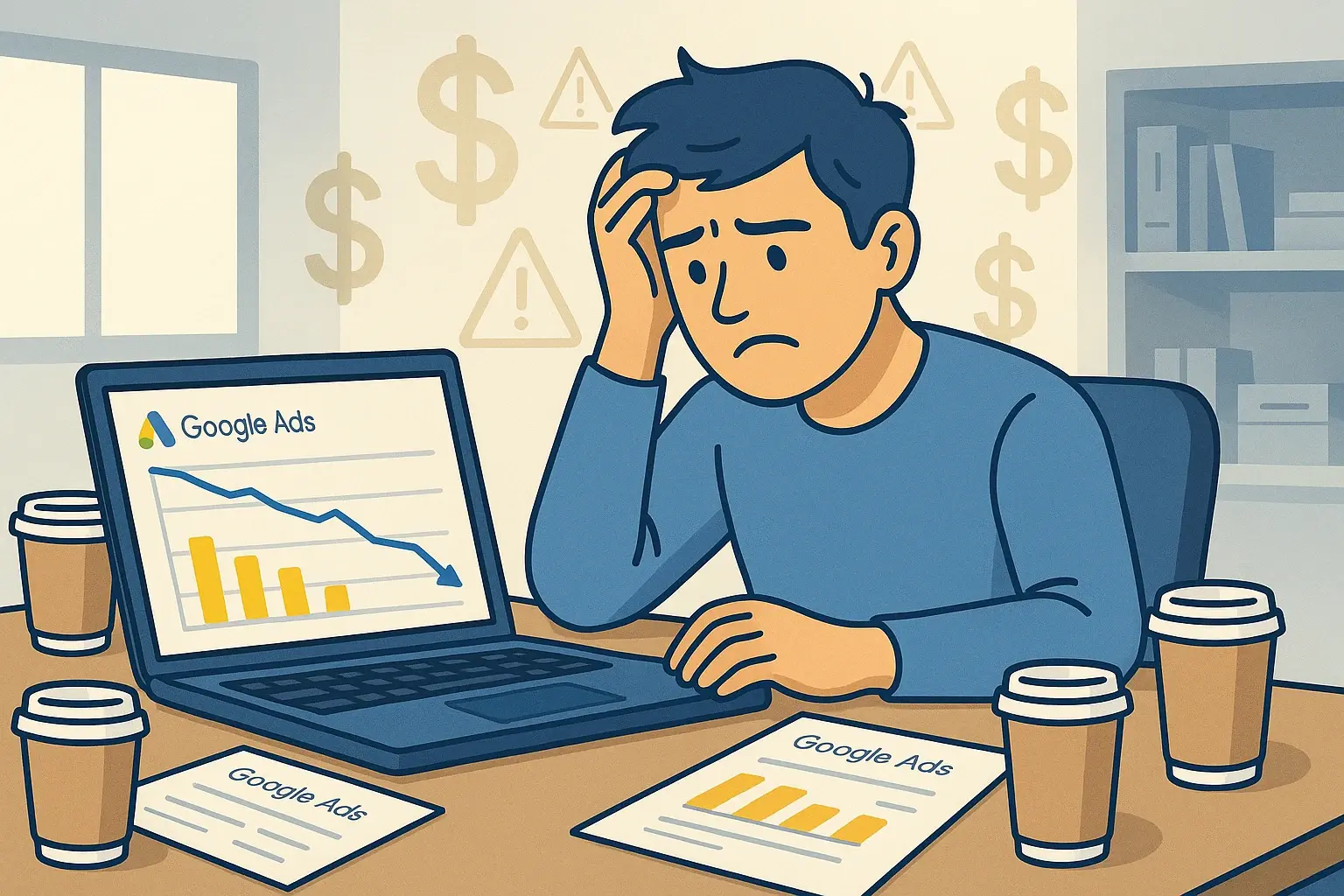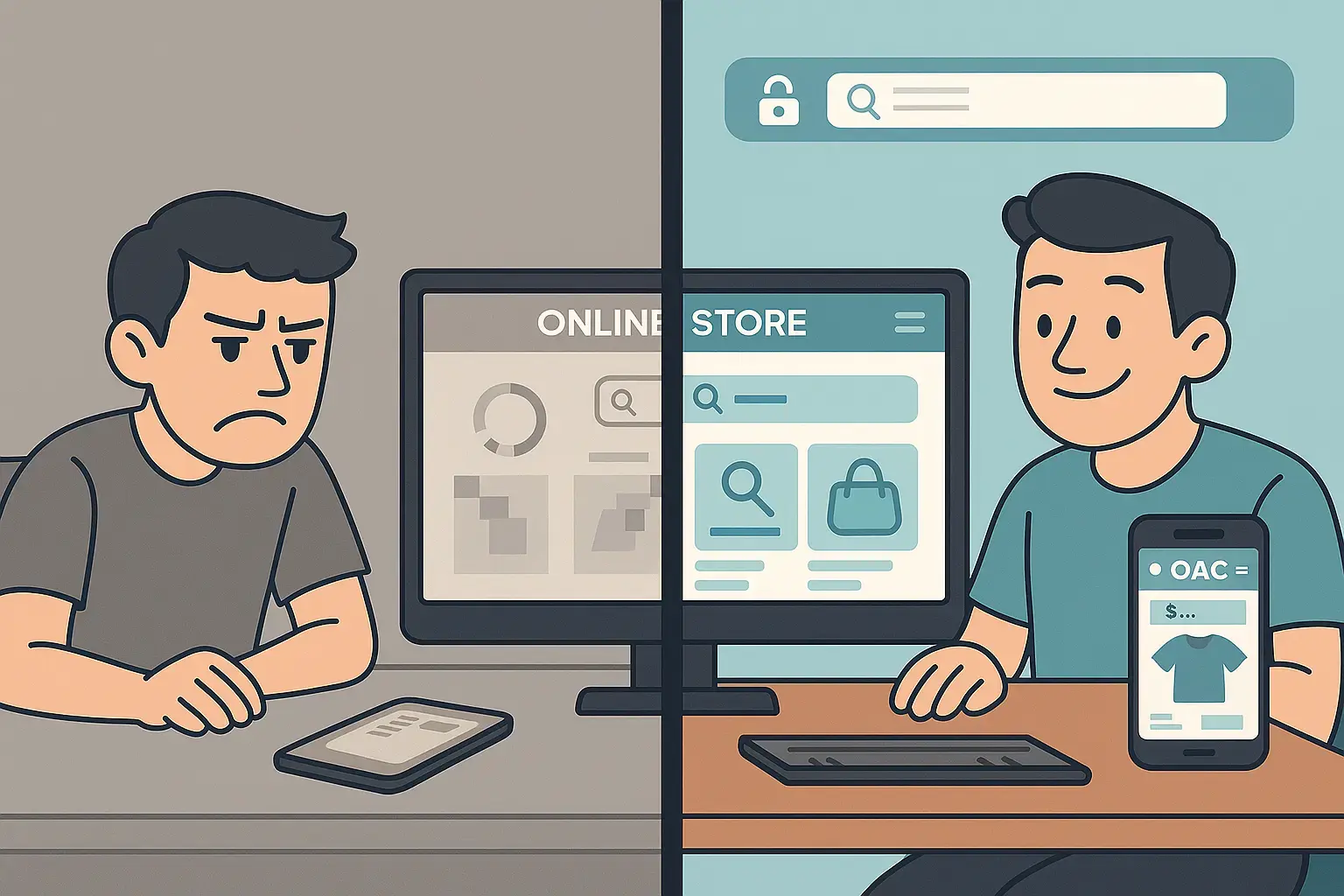Costly Google Ads Mistakes and How to Avoid Them
Let me be blunt: Google Ads is powerful, but it's also a money pit if you’re not careful.
I’ve personally burned through ad budgets faster than I’d like to admit. You set up a campaign, everything looks good on the surface, and next thing you know, you’re paying for clicks from people who were never going to buy from you. It’s frustrating, especially when you’re running a small business or working with a tight budget.
So, if you’ve ever felt like your Google Ads spend is going nowhere fast, here are some real-world mistakes I’ve either made myself—or helped clients clean up.
1. Going Too Broad with Keywords
Early on, I made the mistake of bidding on super broad keywords like "marketing services" or "design help." Sounds reasonable, right? But here’s the thing—those terms attracted all kinds of traffic: people looking for free templates, tutorials, or even school projects.
Lesson learned: the more general your keywords, the more irrelevant clicks you’ll get.
Fix? I started focusing on specific, intent-driven terms. If someone searches “email marketing for real estate agents,” they’re probably closer to hiring someone than a person just typing “email marketing.”
2. Forgetting Negative Keywords
This is a big one, and it’s so easy to skip when you’re in a rush. Not using negative keywords means you might be showing your ads to people who are looking for free versions of what you’re offering, or completely unrelated stuff.
I once had a campaign targeting “CRM for small businesses,” but forgot to block “free.” Half my clicks were from people looking for something I wasn’t offering at all. That’s money gone.
Take a few minutes to brainstorm words you don’t want to be associated with. Add them early, update them often.
3. Writing Boring Ad Copy
Let’s be honest—if your ad looks like every other ad, no one’s clicking. Generic copy like “Top Quality Services at Low Prices” isn’t doing anyone favors.
The copy that’s worked best for me over the years? It’s the kind that sounds like something I’d actually say to a customer.
Think:
-
“Tired of leads that go nowhere? We fix that.”
-
“CRM that actually helps (and doesn’t annoy your team).”
Keep it real. Make it conversational. People aren’t robots.
4. Sending People to the Wrong Page
Big mistake here. I used to just send ad traffic straight to my homepage. The logic? “They’ll navigate to where they need to go.”
They didn’t.
Now I always make sure every ad has a matching landing page that speaks directly to what the user searched for. If the ad is about a free trial, the landing page better have that free trial front and center. Not a slideshow about how great my company is.
5. Letting Google Spend However It Wants
Auto-bidding and Smart Campaigns sound great in theory, but I’ve seen them drain budgets fast without much to show for it. If you’re not watching your account like a hawk—especially at the beginning—you might wake up to some scary numbers.
Now, I start small. I watch daily. I manually test different match types and bids before handing over control to Google’s algorithms.
6. No Conversion Tracking
This one should be obvious, but it’s easy to skip. I’ve seen businesses spend thousands and only track “clicks.” That’s not a result. That’s just someone tapping their phone.
Set up real conversion goals—like form submissions, purchases, bookings. If you don’t measure those, you’ll never know what’s actually working.
7. Ignoring Mobile Experience
One campaign I ran was getting tons of mobile clicks. Great! Or so I thought.
Turns out the landing page looked awful on phones. Buttons overlapped. The form was impossible to fill out. People bailed instantly. I was basically paying for frustration.
Always test your landing page on your phone. If it’s slow, messy, or clunky, fix it before turning your ads back on.
Wrapping It Up
Google Ads isn’t just about throwing money at clicks and hoping for the best. It’s about clarity, consistency, and staying involved.
Don’t let it run on autopilot. Don’t assume Google knows what’s best for your business. And please—don’t forget to check what actual search terms are triggering your ads. You’ll be surprised (and maybe horrified).
Done right, Google Ads can be one of the most cost-effective tools in your arsenal. Done wrong, it’s just a fancy way to donate money to the internet.







